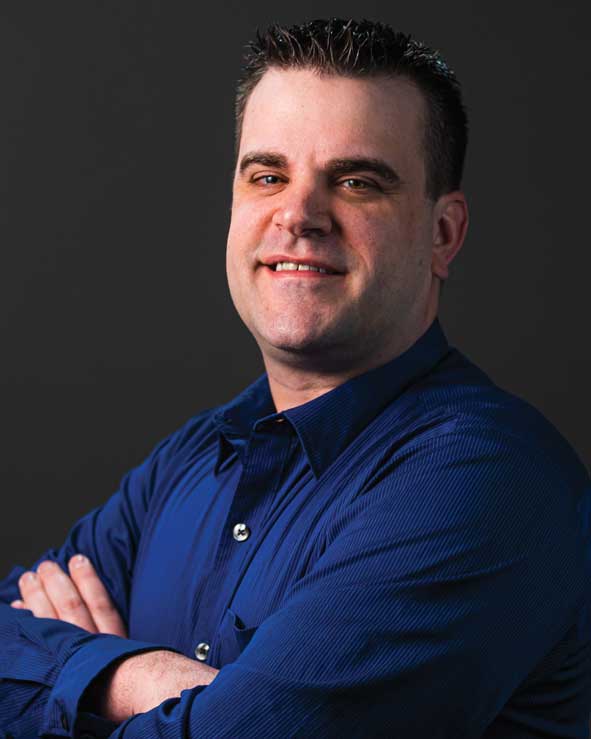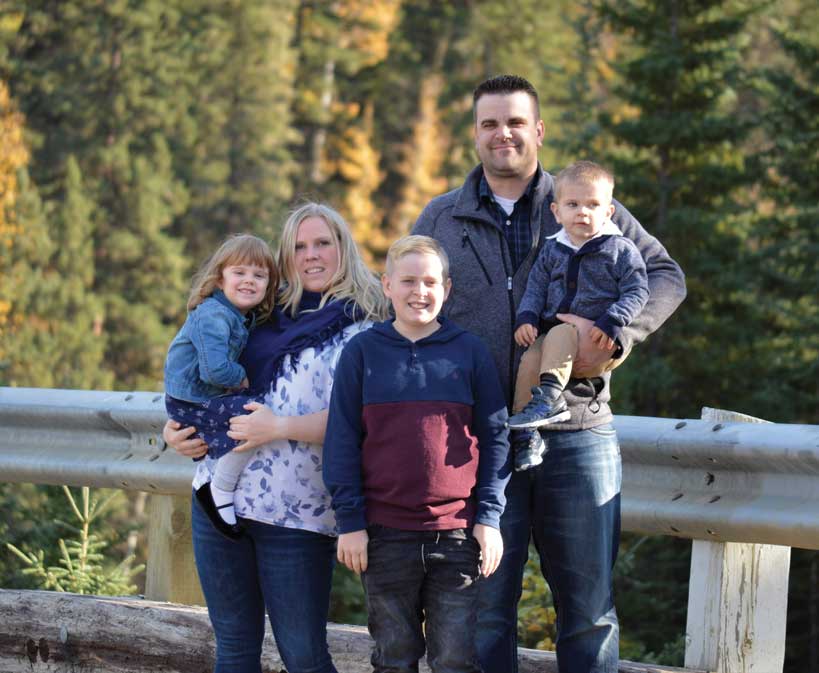
“There is a lot of opportunity for success and growth in the industry, but it is not going to fall onto your lap. You have to go out and get it,” said Warren Baker, branch manager of DFI’s office in Fort St. John, B.C. Precisely, this ‘can do’ attitude helped Baker transition into his present role and continues to help him navigate the challenges of his work.
Baker has had an interesting and varied career. He first began working with tank trucks and hydrovacs in the field, and afterwards transitioned into logistics and management. An opening at DFI allowed him to leverage his prior management experience and pivot towards deep foundations. He joined the DFI team in November 2018.
Speaking with Baker, it is obvious that he appreciates the opportunity to work with a firmly established team. DFI, short for Dave Freeland Industries, manufactures, supplies and offers driven, helical and sheet pile installation. They have branches in B.C., Alberta, Saskatchewan, Texas, Montana, and Australia. DFI celebrated their 50th anniversary in 2019.
When asked how he managed to negotiate the learning curve when transitioning to deep foundations, Baker said that he benefited from DFIs excellent onboarding process, “I found out in a hurry that there is a lot more to just putting a piece of pipe into the ground. There’s definitely a science to it, with a lot of engineering and geotechnical information to process.

“I’m also fortunate that I continue to have mentors I can turn to. Our construction/business development manager, David Baker, helps me out a lot on the customer relationship building aspect of our business and our regional manager, John Black, has taught me a lot on the business side of things.”
Baker also benefited from a steady flow of diverse projects to learn and grow from. Each project came with its own unique requirements and learning opportunities. For instance, Baker cited a casino project in Delta, B.C., that required 1,200 piles in soft soil conditions owing to the site’s proximity to the Fraser River. The piles had to be installed 18 metres deep to mitigate the risk of liquefaction posed by potential earthquake tremors.
For the most part though, Baker’s work with DFI has been in his own back yard in Fort St. John, and has included work for the oil and gas sector. For example, the Coastal GasLink pipeline is currently being built to move natural gas from the area and ship it to the LNG Canada facility near Kitimat, B.C. This line is expected to be in service in 2023. In anticipation of this, production companies in the area are ramping up drilling and processing facilities to ship gas through the line. The pipeline’s construction is causing a boom in the area and a good portion of DFI’s work is related to this development.

“You have to be able to think outside the box because no two jobs are the same.”
Warren Baker
“We did the piles for a natural gas processing plant that prepares gas from wells in the Montney Shale Formation and sends it to Kitimat,” said Baker. The processing plant project alone required the installation of 3,000 driven piles ranging from 6 inches to 16 inches in diameter.
One of the challenges his team faced on the processing plant project was that the ground conditions can vary unexpectedly. Positioned on the outer edge of the Rocky Mountains, the ground in the Fort St. John area is mostly rock and shale. “We often have to pre-drill before we install a pile,” said Baker. “But the geology can change suddenly, and just down the road we might find ourselves piling into muskeg and we’ll have to switch to helical piles.
“We’re lucky in that we have a quick-change adapter that allows us to easily switch back and forth between helical and driven piles with the same machine,” said Baker, emphasizing the need to be both flexible and prepared for unexpected circumstances.



In addition to being prepared, coping with varying geological conditions and arranging suitable access often requires the ability to be flexible and to problem solve. “You have to be able to think outside the box because no two jobs are the same” he said. Baker shared an interesting example how the DFI team’s problem-solving abilities helped find a solution for a client when competing firms said the job was too difficult. In Fort St. John, gas from the region is also shipped out by rail, and a recent upgrade of a railway loading area called for pile-mounted lighting to be installed on either side of a wide set of multiple railway tracks.
There was no convenient way to access the site. “The challenge was that we couldn’t put anything across the tracks and we couldn’t disturb the base of the rail. The client had apparently been told that it couldn’t be done or that the costs would be sky high.”
Baker and the DFI team came up with a unique solution. “We approached the problem a bit differently and came up with the idea of loading our equipment onto a railcar.” The DFI team was then able to install piles on either side of the rail tracks without the risk of damaging the loading area or to the rails themselves.

In addition to project related problem solving, there have been some unexpected challenges. “Covid-19 has certainly been a challenge,” said Baker, “in terms of staying on top of all health and social distancing precautions, as well as navigating a safe path forward for our employees and clients.”
An added challenge of his role as a manager is managing people and personalities. “People skills are important. It’s knowing the strengths of the individuals on your team. We have people who have been with DFI 20 – and even 30 – years, who bring a lot of experience in the field and have seen and done a lot. We also have those just starting out in the industry that bring a fresh new perspective. Pairing the experience and new perspective is how we are able to achieve out-of-the-box solutions for our clients.”
Interestingly, as a newcomer to the industry, one of the biggest challenges Baker experienced was the need to network and branch out, and to do so as quickly as possible. This was even more difficult to do in 2020, due to the Covid-19 pandemic. Still, Baker did manage to fast-track his networking successfully by skillfully leveraging social media. Baker creates project related content and regularly shares it on social media. He showcases DFI’s custom equipment, DFI’s projects and their work capabilities.

“When I started posting about what DFI does on social media, DFI was already on LinkedIn with their own page as well as a couple of other employees that did posts here and there,” said Baker. “I found what we do very interesting and unique, and I wanted to show this to the world. I wanted to find a way to show why it is interesting, from my own perspective as someone who is relatively new to the industry.” More than merely sharing hastily taken photos from his cellphone, Baker has put effort into developing content that, as he said, “I myself would want to see.”
“I jumped in feet-first. I bought a drone, took a cinematography course, passed the stringent Transport Canada licensing requirements and learned how to edit video and photo content.”
He says he’s an avid consumer of blog posts on how to optimize the use of social media effectively and strategically for networking and marketing. “I don’t believe there is a set way to be successful on social media, but my approach is to simply tell a story about what we do and how we do it to people who may not know,” he said.

Explaining the need to be both selective and intentional when curating engaging online content, Baker said, “I also don’t just post anything. I post things I find interesting and that I would want to see. I also try to wait at least one week between posts. You want people to look forward to your content. Quality over quantity.”
His efforts have not gone unnoticed. “It’s easier to connect with people because of the content I post. I’m in a situation where clients have come to me because they’ve seen my posts,” he said, sharing that he’s received several business leads from LinkedIn. These leads have led to numerous projects and even repeat business.
“You have to find ways to separate yourself from the crowd,” said Baker, describing his motivation. “You need to do that by finding new skills and interacting with anyone you can.”